TE
-
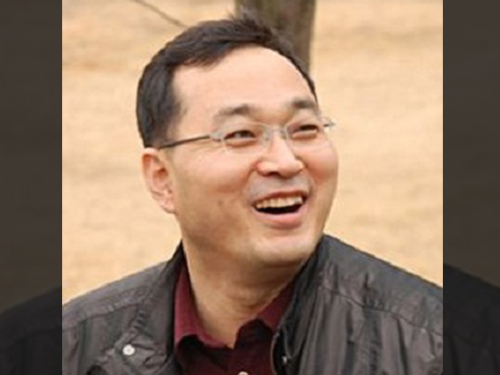 Professor Junehwa Song Appointed as the General Chair of the Organizing Committee of ACM SenSys
Professor Junehwa Song from the Schooling of Computing at KAIST has been appointed the general chair of the organizing committee of ACM SenSys—the American Computing Machine (ACM) Conference on Embedded Networked Sensor Systems.
ACM SenSys held its first conference in 2003 to promote research on wireless sensor networks and embedded systems. Since then, it has expanded into an influential international conference especially with the increasing importance in sensor technologies. Recently the committee has expanded its field of interest to mobile sensors, the Internet of Things, smart device system, and security.
Professor Song is considered a world-renown researcher in mobile and ubiquitous computing system. He presented numerous research papers at various conferences organized by ACM. He is also a member of the editorial committee of the Institute of Electrical and Electronics Engineers (IEEE) Transactions on Mobile Computing journal. For his achievements in the field and flair for coordinating and planning conferences, he is now the first Korean researcher to be appointed the chair of ACM SenSys.
Professor Song said that, as the chair, he would help discover new technology in and applications of networked, wireless sensors that would meet the demands of our modern society.
The 13th ACM SenSys will take place in Seoul—the first one to be held in Asia. The event will begin on November 1, 2015 and last four days. More information about this year’s event can be found at http://sensys.acm.org/2015/.
2015.10.02 View 7761
Professor Junehwa Song Appointed as the General Chair of the Organizing Committee of ACM SenSys
Professor Junehwa Song from the Schooling of Computing at KAIST has been appointed the general chair of the organizing committee of ACM SenSys—the American Computing Machine (ACM) Conference on Embedded Networked Sensor Systems.
ACM SenSys held its first conference in 2003 to promote research on wireless sensor networks and embedded systems. Since then, it has expanded into an influential international conference especially with the increasing importance in sensor technologies. Recently the committee has expanded its field of interest to mobile sensors, the Internet of Things, smart device system, and security.
Professor Song is considered a world-renown researcher in mobile and ubiquitous computing system. He presented numerous research papers at various conferences organized by ACM. He is also a member of the editorial committee of the Institute of Electrical and Electronics Engineers (IEEE) Transactions on Mobile Computing journal. For his achievements in the field and flair for coordinating and planning conferences, he is now the first Korean researcher to be appointed the chair of ACM SenSys.
Professor Song said that, as the chair, he would help discover new technology in and applications of networked, wireless sensors that would meet the demands of our modern society.
The 13th ACM SenSys will take place in Seoul—the first one to be held in Asia. The event will begin on November 1, 2015 and last four days. More information about this year’s event can be found at http://sensys.acm.org/2015/.
2015.10.02 View 7761 -
 Professor Sang-Min Bae receives the 2015 IDEA Awards
Professor Sang-min Bae of the Industrial Design Department at KAIST garnered one silver and two bronze awards from the 2015 International Design Excellence Awards (IDEA). Along with iF Design Award and Red Dot Design Awards, the IDEA is regarded as one of the world’s most respected recognition in the field of design.
Trash to Bin (T2B), a silver winner in the category of Social Impact Design, is a trash bin made of 1.87 lb (0.85 kg) of discarded papers. Using one-hundred percent recycled paper pulp, each T2B costs under $5 for production. The bin can be fully waterproofed for at least six hours. While satisfying with the industry safety standards, this environmentally-friendly bin can be produced on a large scale using litter energy, but offering the exact same benefit of a general garbage can.
Roll-Di, one of the two bronze winners, is a direction indicator that tells which string of screen curtains should be pulled to make the curtain go up or down. As shown in the picture below, Roll-Di can be installed at the bottom of the string, and the “up and down” arrows show which side of the string needs to be pulled to achieve the desired position of the curtain. This simple, yet handy solution to the problem that people frequently make the mistake of pulling the wrong string provides users with greater convenience.
The other bronze winner is Printing Solar-cell, an organic cartridge module that prints solar-cells using a domestic, ink-jet printer. With Printing Solar-cell, users can design their own cell patterns and charge their electronics anywhere holding the printed solar-cell on a copy paper.
Professor Bae said, “I’ve always tried to design something that is useful for people in need. I consider the IDEA awards an encouragement to keep up with my work toward that goal.”
Trash to Bin
Roll-Di
Printing Solar-cell
2015.09.30 View 8289
Professor Sang-Min Bae receives the 2015 IDEA Awards
Professor Sang-min Bae of the Industrial Design Department at KAIST garnered one silver and two bronze awards from the 2015 International Design Excellence Awards (IDEA). Along with iF Design Award and Red Dot Design Awards, the IDEA is regarded as one of the world’s most respected recognition in the field of design.
Trash to Bin (T2B), a silver winner in the category of Social Impact Design, is a trash bin made of 1.87 lb (0.85 kg) of discarded papers. Using one-hundred percent recycled paper pulp, each T2B costs under $5 for production. The bin can be fully waterproofed for at least six hours. While satisfying with the industry safety standards, this environmentally-friendly bin can be produced on a large scale using litter energy, but offering the exact same benefit of a general garbage can.
Roll-Di, one of the two bronze winners, is a direction indicator that tells which string of screen curtains should be pulled to make the curtain go up or down. As shown in the picture below, Roll-Di can be installed at the bottom of the string, and the “up and down” arrows show which side of the string needs to be pulled to achieve the desired position of the curtain. This simple, yet handy solution to the problem that people frequently make the mistake of pulling the wrong string provides users with greater convenience.
The other bronze winner is Printing Solar-cell, an organic cartridge module that prints solar-cells using a domestic, ink-jet printer. With Printing Solar-cell, users can design their own cell patterns and charge their electronics anywhere holding the printed solar-cell on a copy paper.
Professor Bae said, “I’ve always tried to design something that is useful for people in need. I consider the IDEA awards an encouragement to keep up with my work toward that goal.”
Trash to Bin
Roll-Di
Printing Solar-cell
2015.09.30 View 8289 -
 KAIST and Oberthur Technologies Agree for Research and Development in Mobile Security
Professor Kwangjo Kim of the School of Computing at KAIST has signed a research and development (R&D) agreement with Marc Bertin, the Chief Technology Officer of Oberthur Technologies (OT), a French security solutions firm, on September 18, 2015 in Paris.
Under the agreement, KAIST and OT will conduct joint research on mobile security as well as implement an internship program for KAIST graduate students to work either at OT’s R&D center in Korea or in France.
OT has established a research center in Korea in July 2014, which was the fourth of its research centers in Asia.
Professor Kim said, “Our goal at KAIST is to cultivate top-level security experts in security technologies. By partnering with such a leader in security technologies as OT, we know that we will both help shape tomorrow’s security solution for the IoT (Internet of Things) space.”
In the picture, Professor Kwangjo Kim (left) shakes hands with Marc Bertin, the Chief Technology Officer of Oberthur Technologies (right), after the signing of a memorandum of understanding.
2015.09.24 View 7739
KAIST and Oberthur Technologies Agree for Research and Development in Mobile Security
Professor Kwangjo Kim of the School of Computing at KAIST has signed a research and development (R&D) agreement with Marc Bertin, the Chief Technology Officer of Oberthur Technologies (OT), a French security solutions firm, on September 18, 2015 in Paris.
Under the agreement, KAIST and OT will conduct joint research on mobile security as well as implement an internship program for KAIST graduate students to work either at OT’s R&D center in Korea or in France.
OT has established a research center in Korea in July 2014, which was the fourth of its research centers in Asia.
Professor Kim said, “Our goal at KAIST is to cultivate top-level security experts in security technologies. By partnering with such a leader in security technologies as OT, we know that we will both help shape tomorrow’s security solution for the IoT (Internet of Things) space.”
In the picture, Professor Kwangjo Kim (left) shakes hands with Marc Bertin, the Chief Technology Officer of Oberthur Technologies (right), after the signing of a memorandum of understanding.
2015.09.24 View 7739 -
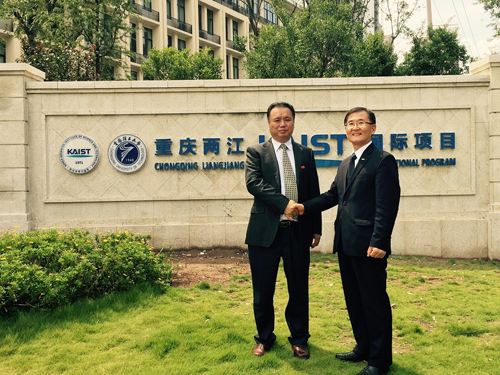 KAIST and Chongqing University of Technology in China Open an International Program
With the help of KAIST, Chongqing University of Technology (CQUT) in China established an electrical engineering and computer science program and admitted their first 66 freshmen this fall semester.
The joint program was created to foster skilled engineers in the fields of electrical engineering and computer science, which are necessary for the development of the Korean and Chinese Industrial Complex located in Chongqing City.
KAIST has provided CQUT with a majority of the program’s curricula currently offered to its students in Daejeon, Korea.
Under the jointly administered program, KAIST takes on education and research while CQUT is responsible for student selection and administration.
KAIST has dispatched eight professors to teach the related fields in English, and 17 CQUT professors will teach the rest of the curricula.
In August 2014, KAIST and CQUT singed a cooperation agreement for education and research exchange and created the CQUT-KAIST Education Cooperation Center, which is headed by Professor Young-Nam Han of the Electrical Engineering Department at KAIST.
The two universities will expand their collaboration to include graduate programs by 2016.
In the picture below, President Steve Kang of KAIST (right) shakes hands with President Shi Xiaohui of Chongqing University of Technology (left).
2015.09.17 View 10666
KAIST and Chongqing University of Technology in China Open an International Program
With the help of KAIST, Chongqing University of Technology (CQUT) in China established an electrical engineering and computer science program and admitted their first 66 freshmen this fall semester.
The joint program was created to foster skilled engineers in the fields of electrical engineering and computer science, which are necessary for the development of the Korean and Chinese Industrial Complex located in Chongqing City.
KAIST has provided CQUT with a majority of the program’s curricula currently offered to its students in Daejeon, Korea.
Under the jointly administered program, KAIST takes on education and research while CQUT is responsible for student selection and administration.
KAIST has dispatched eight professors to teach the related fields in English, and 17 CQUT professors will teach the rest of the curricula.
In August 2014, KAIST and CQUT singed a cooperation agreement for education and research exchange and created the CQUT-KAIST Education Cooperation Center, which is headed by Professor Young-Nam Han of the Electrical Engineering Department at KAIST.
The two universities will expand their collaboration to include graduate programs by 2016.
In the picture below, President Steve Kang of KAIST (right) shakes hands with President Shi Xiaohui of Chongqing University of Technology (left).
2015.09.17 View 10666 -
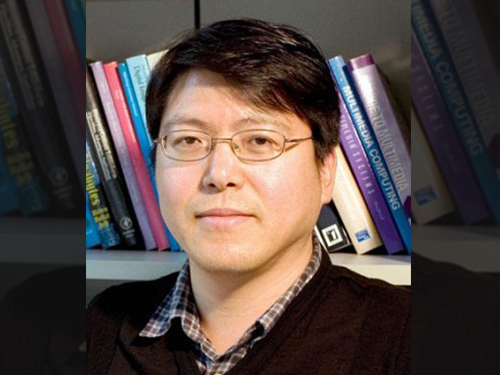 Professor Woontack Woo Demonstrates an Optical Platform Technology for Augmented Reality at Smart Cloud Show
Professor Woontack Woo of the Graduate School of Culture Technology at KAIST participated in the Smart Cloud Show, a technology exhibition, hosted by the university’s Augmented Human Research Center and presented the latest development of his research, an optical platform system for augmented reality.
This event took place on September 16-17, 2015 at Grand Seoul Nine Tree Convention Center in Seoul.
At the event, Professor Woo introduced a smart glass with an embedded augmented reality system, which permits remote collaboration between an avatar and the user’s hand.
The previous remote collaboration was difficult for ordinary users to employ because of its two-dimensional screen and complicated virtual reality system.
However, with the new technology, the camera attached to artificial reality (AR) glasses recognizes the user’s hand and tracks it down to collaborate. The avatar in the virtual space and the user’s hand interact in real space and time.
The key to this technology is the stable, real-time hand-tracking technique that allows the detection of the hand’s locations and the recognition of finger movements even in situations of self-occlusion.
Through this method, a user can touch and manipulate augmented contents as if they were real-life objects, thereby collaborating remotely with another user who is physically distant by linking his or her movements with an avatar.
If this technology is adopted widely, it may bring some economic benefits such as increased productivity due to lower costs for mobility and reduction in social overhead costs from the decrease in the need of traveling long distance.
Professor Woo said, “This technology will provide us with a greater opportunity for collaboration, not necessarily restricted to physical travelling, which can be widely used in the fields of medicine, education, entertainment, and tourism.”
Professor Woo plans to present his research results on hand-movement tracking and detection at the 12th International Conference on Ubiquitous Robots and Ambient Intelligence (URAI 2015), to be held on October 28-30, 2015, at Kintex in Goyang, Korea.
He will also present a research paper on remote collaboration at the ICAT-EGVE 2015 conference, the merger of the 25th International Conference on Artificial Reality and Telexistence (ICAT 2015) and the 20th Eurographics Symposium on Virtual Environments (EGVE 2015), which will take place on October 28-30, 2015 at the Kyoto International Community House, Kyoto, Japan.
2015.09.16 View 9144
Professor Woontack Woo Demonstrates an Optical Platform Technology for Augmented Reality at Smart Cloud Show
Professor Woontack Woo of the Graduate School of Culture Technology at KAIST participated in the Smart Cloud Show, a technology exhibition, hosted by the university’s Augmented Human Research Center and presented the latest development of his research, an optical platform system for augmented reality.
This event took place on September 16-17, 2015 at Grand Seoul Nine Tree Convention Center in Seoul.
At the event, Professor Woo introduced a smart glass with an embedded augmented reality system, which permits remote collaboration between an avatar and the user’s hand.
The previous remote collaboration was difficult for ordinary users to employ because of its two-dimensional screen and complicated virtual reality system.
However, with the new technology, the camera attached to artificial reality (AR) glasses recognizes the user’s hand and tracks it down to collaborate. The avatar in the virtual space and the user’s hand interact in real space and time.
The key to this technology is the stable, real-time hand-tracking technique that allows the detection of the hand’s locations and the recognition of finger movements even in situations of self-occlusion.
Through this method, a user can touch and manipulate augmented contents as if they were real-life objects, thereby collaborating remotely with another user who is physically distant by linking his or her movements with an avatar.
If this technology is adopted widely, it may bring some economic benefits such as increased productivity due to lower costs for mobility and reduction in social overhead costs from the decrease in the need of traveling long distance.
Professor Woo said, “This technology will provide us with a greater opportunity for collaboration, not necessarily restricted to physical travelling, which can be widely used in the fields of medicine, education, entertainment, and tourism.”
Professor Woo plans to present his research results on hand-movement tracking and detection at the 12th International Conference on Ubiquitous Robots and Ambient Intelligence (URAI 2015), to be held on October 28-30, 2015, at Kintex in Goyang, Korea.
He will also present a research paper on remote collaboration at the ICAT-EGVE 2015 conference, the merger of the 25th International Conference on Artificial Reality and Telexistence (ICAT 2015) and the 20th Eurographics Symposium on Virtual Environments (EGVE 2015), which will take place on October 28-30, 2015 at the Kyoto International Community House, Kyoto, Japan.
2015.09.16 View 9144 -
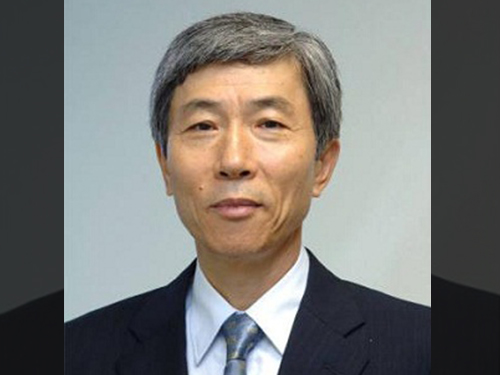 Professor Seok-Jung Kang Is Appointed the Director of the Korea Institute of Ceramic Engineering and Technology
Professor Seok-Jung Kang of the Material Sciences and Engineering Department at KAIST has been appointed to the position of the third Director of the Korea Institute of Ceramic Engineering and Technology. His three-year term will begin September 9, 2015.
An authority in the field of ceramics, Professor Kang has taught at KAIST since 1980. He received his bachelor’s degree from the Department of Metallurgical Engineering at Seoul National University, his master’s degree at KAIST, and his doctoral degree at the Ecole Centrale de Paris.
Professor Kang received the Robert B. Sosman Award in 2011, an annual prize given by the American Society of Ceramics to recognize outstanding achievement in basic science in an area that results in significant impact to the field of ceramics. He was the first Asian recipient of the award.
He also received the 2015 Professor Sir Richard Brooke Award, a prestigious bi-annual prize presented to an outstanding scholar by the European Society of Ceramics.
2015.09.15 View 6710
Professor Seok-Jung Kang Is Appointed the Director of the Korea Institute of Ceramic Engineering and Technology
Professor Seok-Jung Kang of the Material Sciences and Engineering Department at KAIST has been appointed to the position of the third Director of the Korea Institute of Ceramic Engineering and Technology. His three-year term will begin September 9, 2015.
An authority in the field of ceramics, Professor Kang has taught at KAIST since 1980. He received his bachelor’s degree from the Department of Metallurgical Engineering at Seoul National University, his master’s degree at KAIST, and his doctoral degree at the Ecole Centrale de Paris.
Professor Kang received the Robert B. Sosman Award in 2011, an annual prize given by the American Society of Ceramics to recognize outstanding achievement in basic science in an area that results in significant impact to the field of ceramics. He was the first Asian recipient of the award.
He also received the 2015 Professor Sir Richard Brooke Award, a prestigious bi-annual prize presented to an outstanding scholar by the European Society of Ceramics.
2015.09.15 View 6710 -
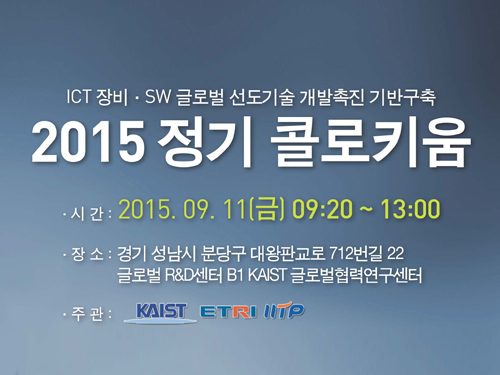 KAIST to Hold a Colloquium on the Internet of Things and Open Stack
With the support of the Ministry of Science, ICT, and Future Planning of Korea, KAIST hosted a colloquium on the Internet of Things (IoT) and Open Stack at the KAIST Research Center for Global Cooperation located in Pangyo. The upcoming event was organized to provide an overview of the technological trends to IT companies and foster their success in the global market.
The colloquium invited numerous field-experts as speakers and discussed the influence of IoT and OpenStack on the small- and medium-sized companies in Korea.
Professor Gwan-Hoo Lee from the American University joined as a speaker and shared his insights of how IoT would change the global business environment. He introduced various business models developed by Microsoft, Intel, Apple, Google, and Cisco and discussed how Korean companies could utilize the existing tools and strategy to succeed in the global market. His talk focused specifically on the importance of overseas partnerships and technology stack analysis.
President Hyun-Jung Jang from the Korean OpenStack Community also gave a speech on global partnership through OpenStack. He discussed the future trends of OpenStack and why companies should invest in the field.
KAIST used the event as an opportunity to provide information to domestic companies that are interested in building partnerships with overseas companies and in developing new IoT and OpenStack technology.
More information about the event can be provided online at www.ictc.or.kr.
2015.09.11 View 5447
KAIST to Hold a Colloquium on the Internet of Things and Open Stack
With the support of the Ministry of Science, ICT, and Future Planning of Korea, KAIST hosted a colloquium on the Internet of Things (IoT) and Open Stack at the KAIST Research Center for Global Cooperation located in Pangyo. The upcoming event was organized to provide an overview of the technological trends to IT companies and foster their success in the global market.
The colloquium invited numerous field-experts as speakers and discussed the influence of IoT and OpenStack on the small- and medium-sized companies in Korea.
Professor Gwan-Hoo Lee from the American University joined as a speaker and shared his insights of how IoT would change the global business environment. He introduced various business models developed by Microsoft, Intel, Apple, Google, and Cisco and discussed how Korean companies could utilize the existing tools and strategy to succeed in the global market. His talk focused specifically on the importance of overseas partnerships and technology stack analysis.
President Hyun-Jung Jang from the Korean OpenStack Community also gave a speech on global partnership through OpenStack. He discussed the future trends of OpenStack and why companies should invest in the field.
KAIST used the event as an opportunity to provide information to domestic companies that are interested in building partnerships with overseas companies and in developing new IoT and OpenStack technology.
More information about the event can be provided online at www.ictc.or.kr.
2015.09.11 View 5447 -
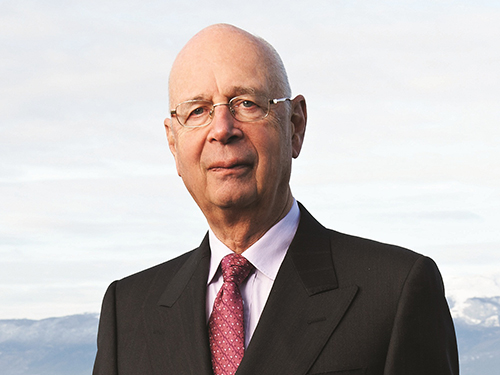 Klaus Schwab to Receive Doctorate from KAIST University
Courtesy of Press Release from the World Economic Forum:
Klaus Schwab to Receive Doctorate from KAIST University
KAIST University to confer Doctorate to World Economic Forum Executive Chairman and Founder Klaus Schwab
The ceremony will take place on 7 September at KAIST University, Daejeon, South Korea
For more information: http://wef.ch/KlausSchwab
Geneva, Switzerland, 26 August 2015 – Professor Klaus Schwab, Founder and Executive Chairman of the World Economic Forum, will be honoured on Monday 7 September by the Korea Advanced Institute of Science and Technology (KAIST), with his 14th honorary doctorate.
This honour will be bestowed on him in recognition of his work in the field of science, in particular his efforts to promote corporate social responsibility and for the concept of multistakeholder cooperation, which he originated in 1971.
Before creating the World Economic Forum, Professor Schwab had a distinctive academic career, earning two doctorates – one in engineering from the Swiss Federal Institute of Technology (ETH) in Zurich and the other in economics (summa cum laude) from the University of Fribourg, Switzerland. He also studied at Harvard University, where he earned a Master in Public Administration. In 1972 he became one of the youngest professors at the University of Geneva, where he taught business policy for over 30 years.
The ceremony will be attended by over 200 students, KAIST faculty members, Jang-Moo Lee, Chairman of the KAIST Board of Trustees, and Mayor Seon-Taek Kwon of Daejeon. “Klaus Schwab, through his forward-looking vision and outstanding leadership, has cultivated the World Economic Forum into a global organization, contributing significantly to improving the global economy as well as to resolving international conflicts,” said Sung-Mo “Steve” Kang, President of KAIST.
“It is a great honour to receive this honorary doctoral degree from KAIST, an institution which is known for academic excellence and the role it has played in helping South Korea achieve the level of modernization in a matter of decades that the western world took over a century to achieve,” Professor Schwab said.
At the ceremony, Professor Schwab will give a speech on the “Impact of Disruptive Forces on Our World” and will elaborate on how technological and geopolitical development is shaping global, regional, national and industry agendas.
2015.09.09 View 8276
Klaus Schwab to Receive Doctorate from KAIST University
Courtesy of Press Release from the World Economic Forum:
Klaus Schwab to Receive Doctorate from KAIST University
KAIST University to confer Doctorate to World Economic Forum Executive Chairman and Founder Klaus Schwab
The ceremony will take place on 7 September at KAIST University, Daejeon, South Korea
For more information: http://wef.ch/KlausSchwab
Geneva, Switzerland, 26 August 2015 – Professor Klaus Schwab, Founder and Executive Chairman of the World Economic Forum, will be honoured on Monday 7 September by the Korea Advanced Institute of Science and Technology (KAIST), with his 14th honorary doctorate.
This honour will be bestowed on him in recognition of his work in the field of science, in particular his efforts to promote corporate social responsibility and for the concept of multistakeholder cooperation, which he originated in 1971.
Before creating the World Economic Forum, Professor Schwab had a distinctive academic career, earning two doctorates – one in engineering from the Swiss Federal Institute of Technology (ETH) in Zurich and the other in economics (summa cum laude) from the University of Fribourg, Switzerland. He also studied at Harvard University, where he earned a Master in Public Administration. In 1972 he became one of the youngest professors at the University of Geneva, where he taught business policy for over 30 years.
The ceremony will be attended by over 200 students, KAIST faculty members, Jang-Moo Lee, Chairman of the KAIST Board of Trustees, and Mayor Seon-Taek Kwon of Daejeon. “Klaus Schwab, through his forward-looking vision and outstanding leadership, has cultivated the World Economic Forum into a global organization, contributing significantly to improving the global economy as well as to resolving international conflicts,” said Sung-Mo “Steve” Kang, President of KAIST.
“It is a great honour to receive this honorary doctoral degree from KAIST, an institution which is known for academic excellence and the role it has played in helping South Korea achieve the level of modernization in a matter of decades that the western world took over a century to achieve,” Professor Schwab said.
At the ceremony, Professor Schwab will give a speech on the “Impact of Disruptive Forces on Our World” and will elaborate on how technological and geopolitical development is shaping global, regional, national and industry agendas.
2015.09.09 View 8276 -
 Professor Jeong Ho Lee Receives the 2015 Pediatric Epilepsies Research Award
The award identifies leading scientists worldwide and funds their cutting-edge research in epilepsy.
The Citizen United for Research in Epilepsy (CURE) announced on September 7, 2015, that Jeong Ho Lee, a professor of the Graduate School of Medical Science and Engineering at KAIST, will be awarded the 2015 Pediatric Epilepsies Research Award.
The Pediatric Epilepsies Research Award is given annually to a researcher who has conducted novel, innovative research projects that address severe, intractable pediatric epilepsies as well as collaborative, interdisciplinary projects that explore new approaches to find a treatment for pediatric epilepsies.
Lee was recognized for his leading study in the field of intractable epilepsy. He is the first Korean who has ever received this award, securing a research grant of USD 250,000 for two years.
Lee has conducted research on brain somatic mutations as the novel cause of childhood intractable epilepsy. Pediatric epilepsies account for approximately 70% of all cases of epilepsy.
Established in 1998, CURE is a non-profit American organization based in Chicago, Illinois, which is committed to funding research and various initiatives that will lead to breakthroughs to cure epilepsy.
Since its inception, CURE has been at the forefront of epilepsy research, raising more than USD 32 million to support researchers and scientists worldwide. It has also awarded more than 180 cutting-edge projects in 13 countries.
2015.09.09 View 11274
Professor Jeong Ho Lee Receives the 2015 Pediatric Epilepsies Research Award
The award identifies leading scientists worldwide and funds their cutting-edge research in epilepsy.
The Citizen United for Research in Epilepsy (CURE) announced on September 7, 2015, that Jeong Ho Lee, a professor of the Graduate School of Medical Science and Engineering at KAIST, will be awarded the 2015 Pediatric Epilepsies Research Award.
The Pediatric Epilepsies Research Award is given annually to a researcher who has conducted novel, innovative research projects that address severe, intractable pediatric epilepsies as well as collaborative, interdisciplinary projects that explore new approaches to find a treatment for pediatric epilepsies.
Lee was recognized for his leading study in the field of intractable epilepsy. He is the first Korean who has ever received this award, securing a research grant of USD 250,000 for two years.
Lee has conducted research on brain somatic mutations as the novel cause of childhood intractable epilepsy. Pediatric epilepsies account for approximately 70% of all cases of epilepsy.
Established in 1998, CURE is a non-profit American organization based in Chicago, Illinois, which is committed to funding research and various initiatives that will lead to breakthroughs to cure epilepsy.
Since its inception, CURE has been at the forefront of epilepsy research, raising more than USD 32 million to support researchers and scientists worldwide. It has also awarded more than 180 cutting-edge projects in 13 countries.
2015.09.09 View 11274 -
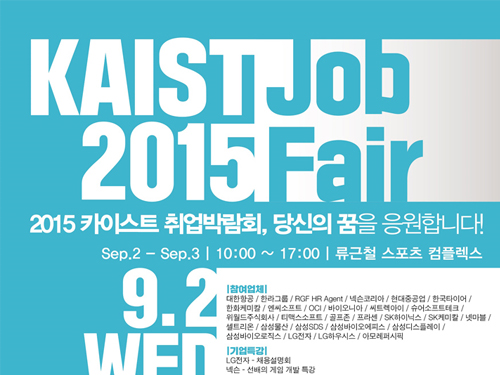 KAIST's Student Job Fair 2015
KAIST’s Undergraduate Student Council and Graduate Student Council jointly hosted the 2015 KAIST Job Fair on September 2-3, 2015 at the Sports Complex on campus.
The Job Fair took place for the sixth time this year. Forty-three companies, including some of the largest ones in Korea such as Samsung, Hyundai, LG, SK Construction, Hankook Tires, as well as those owned by KAIST graduates, have participated.
The Job Fair specialized in three fields: information technology (IT) and electronic and mechanical engineering. The event included one-to-one employment counseling between human resources managers and students, mock interviews, employment orientations, job consulting, interview makeup lessons, resume writing and photo-shooting, etc.
The international students who attended the event received information packages on employment from the participating companies.
This event was open not only to KAIST students but also to students from other universities in the local community, offering more job opportunities to a wider range of people.
Last year alone, a total of 1,200 people including KAIST students and graduates joined the KAIST’s Job Fair.
2015.09.04 View 6516
KAIST's Student Job Fair 2015
KAIST’s Undergraduate Student Council and Graduate Student Council jointly hosted the 2015 KAIST Job Fair on September 2-3, 2015 at the Sports Complex on campus.
The Job Fair took place for the sixth time this year. Forty-three companies, including some of the largest ones in Korea such as Samsung, Hyundai, LG, SK Construction, Hankook Tires, as well as those owned by KAIST graduates, have participated.
The Job Fair specialized in three fields: information technology (IT) and electronic and mechanical engineering. The event included one-to-one employment counseling between human resources managers and students, mock interviews, employment orientations, job consulting, interview makeup lessons, resume writing and photo-shooting, etc.
The international students who attended the event received information packages on employment from the participating companies.
This event was open not only to KAIST students but also to students from other universities in the local community, offering more job opportunities to a wider range of people.
Last year alone, a total of 1,200 people including KAIST students and graduates joined the KAIST’s Job Fair.
2015.09.04 View 6516 -
 KAIST's Research Team Receives the Best Paper Award from the IEEE Transaction on Power Electronics
A research team led by Professor Chun T. Rim of the Department of Nuclear and Quantum Engineering at the Korea Advanced Institute of Science and Technology (KAIST) has received the First Prize Papers Award from the IEEE (Institute of Electrical and Electronics Engineers) Transactions on Power Electronics (TPEL), a peer-reviewed journal that covers fundamental technologies used in the control and conversion of electric power.
A total of three research papers received this award in 2015.
Each year, TPEL’s editors select three best papers among those published in the journal during the preceding calendar year. In 2014, the TPEL published 579 papers. Professor Rim’s paper was picked out as one of the three papers published last year for the First Prize Papers Award.
Entitled “Generalized Active EMF (electromagnetic field) Cancel Methods for Wireless Electric Vehicles (http://ieeexplore.ieee.org/xpls/abs_all.jsp?arnumber=6684288&tag=1),” the paper proposed, for the first time in the world, three generalized design methods for cancelling the total EMF generated from wireless electric vehicles. This technology, researchers said, can be applied to any wireless power transfer systems.
The award ceremony will be held at the upcoming conference of the 2015 IEEE Energy Conversion Congress and Expo in September in Montreal, Canada.
2015.08.27 View 10719
KAIST's Research Team Receives the Best Paper Award from the IEEE Transaction on Power Electronics
A research team led by Professor Chun T. Rim of the Department of Nuclear and Quantum Engineering at the Korea Advanced Institute of Science and Technology (KAIST) has received the First Prize Papers Award from the IEEE (Institute of Electrical and Electronics Engineers) Transactions on Power Electronics (TPEL), a peer-reviewed journal that covers fundamental technologies used in the control and conversion of electric power.
A total of three research papers received this award in 2015.
Each year, TPEL’s editors select three best papers among those published in the journal during the preceding calendar year. In 2014, the TPEL published 579 papers. Professor Rim’s paper was picked out as one of the three papers published last year for the First Prize Papers Award.
Entitled “Generalized Active EMF (electromagnetic field) Cancel Methods for Wireless Electric Vehicles (http://ieeexplore.ieee.org/xpls/abs_all.jsp?arnumber=6684288&tag=1),” the paper proposed, for the first time in the world, three generalized design methods for cancelling the total EMF generated from wireless electric vehicles. This technology, researchers said, can be applied to any wireless power transfer systems.
The award ceremony will be held at the upcoming conference of the 2015 IEEE Energy Conversion Congress and Expo in September in Montreal, Canada.
2015.08.27 View 10719 -
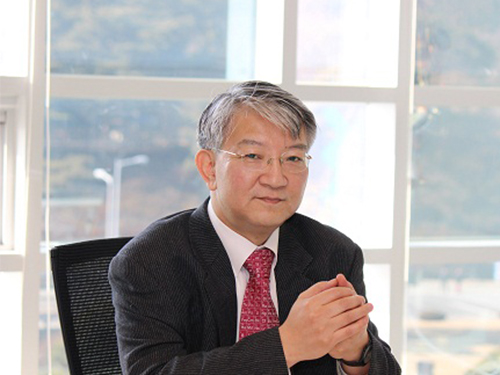 Nature Biotechnology Nominates Sang Yup Lee of KAIST for Top 20 Translational Researchers of 2014
Nature Biotechnology, recognized as the most prestigious journal in the field of biotechnology, has released today its list of the Top 20 Translational Researchers of 2014. Distinguished Professor Sang Yup Lee of the Department of Chemical and Biomolecular Engineering at KAIST (Korea Advanced Institute of Science and Technology) ranked seventh in the list. He is the only Asian researcher listed.
The journal, in partnership with IP Checkups, a patent analytics firm, presents an annual ranking of researchers based on their paper and patent output. The list includes, among others, each researcher’s most-cited patent in the past five years and their H index, a measurement to evaluate the impact of a researcher’s published work utilizing citation analysis. (More details can be found at http://www.nature.com/bioent/2015/150801/full/bioe.2015.9.html.)
American institutions made up the majority of the list, with 18 universities and research institutes, and the remainder was filled by KAIST in Korea and the Commonwealth Scientific and Industrial Research Organization (CSIRO) in Australia.
Globally known as a leading researcher in systems metabolic engineering, Professor Lee has published more than 500 journal papers and 580 patents. He has received many awards, including the Citation Classic Award, Elmer Gaden Award, Merck Metabolic Engineering Award, ACS Marvin Johnson Award, SIMB Charles Thom Award, POSCO TJ Park Prize, Amgen Biochemical Engineering Award, and the Ho Am Prize in Engineering.
2015.08.27 View 10592
Nature Biotechnology Nominates Sang Yup Lee of KAIST for Top 20 Translational Researchers of 2014
Nature Biotechnology, recognized as the most prestigious journal in the field of biotechnology, has released today its list of the Top 20 Translational Researchers of 2014. Distinguished Professor Sang Yup Lee of the Department of Chemical and Biomolecular Engineering at KAIST (Korea Advanced Institute of Science and Technology) ranked seventh in the list. He is the only Asian researcher listed.
The journal, in partnership with IP Checkups, a patent analytics firm, presents an annual ranking of researchers based on their paper and patent output. The list includes, among others, each researcher’s most-cited patent in the past five years and their H index, a measurement to evaluate the impact of a researcher’s published work utilizing citation analysis. (More details can be found at http://www.nature.com/bioent/2015/150801/full/bioe.2015.9.html.)
American institutions made up the majority of the list, with 18 universities and research institutes, and the remainder was filled by KAIST in Korea and the Commonwealth Scientific and Industrial Research Organization (CSIRO) in Australia.
Globally known as a leading researcher in systems metabolic engineering, Professor Lee has published more than 500 journal papers and 580 patents. He has received many awards, including the Citation Classic Award, Elmer Gaden Award, Merck Metabolic Engineering Award, ACS Marvin Johnson Award, SIMB Charles Thom Award, POSCO TJ Park Prize, Amgen Biochemical Engineering Award, and the Ho Am Prize in Engineering.
2015.08.27 View 10592